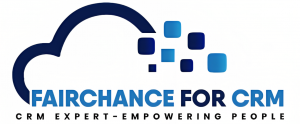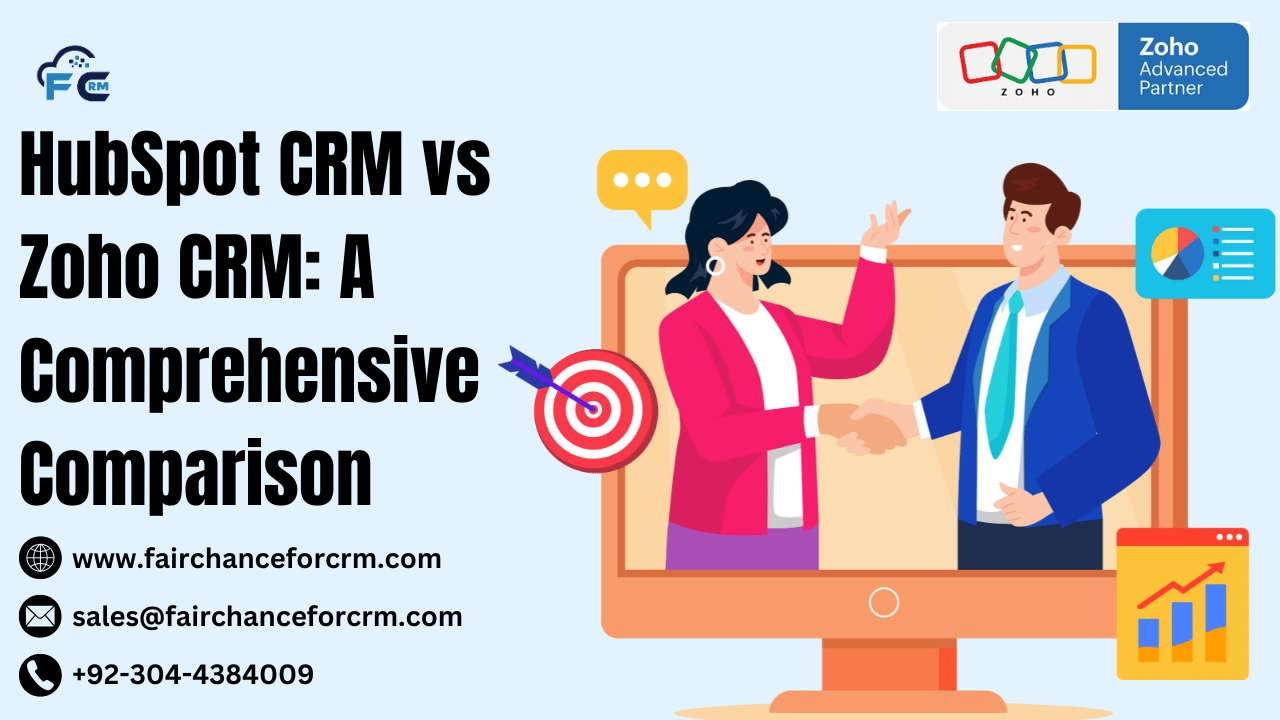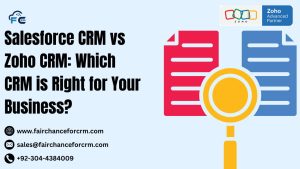When it comes to CRM (Customer Relationship Management) solutions, two popular platforms that businesses frequently consider are HubSpot CRM vs Zoho CRM. Both are widely used, but they cater to different business needs, budgets, and preferences. In this comparison, we will explore the key features, advantages, disadvantages, and pricing of both platforms to help you determine which CRM is best suited for your organization.
Also Read:
- Odoo Backend: Features, Benefits, and Customization – Complete Guidance
- Mastering Odoo Route Management: A Comprehensive Guide
- How to Create and Manage a Gantt Chart View in Odoo 15: A Complete Guide
- Highrise CRM vs Zoho CRM – Complete Guidance
- Zoho Books API – Complete Guidance
HubSpot CRM vs Zoho CRM – Complete Guide
HubSpot CRM Overview
HubSpot CRM is a powerful and user-friendly CRM that is ideal for small to medium-sized businesses. It offers a free CRM solution with an intuitive interface and integrates seamlessly with other HubSpot tools like marketing, sales, and customer service.
Best Features of HubSpot CRM:
- Free Plan: HubSpot CRM offers a fully free plan, which includes basic CRM functionalities.
- Intuitive User Interface: Easy to use with a simple and clean interface, making it suitable for beginners.
- Automation: Workflow automation tools, including lead nurturing, task assignment, and follow-up reminders.
- Sales Pipeline Management: HubSpot CRM offers a visual sales pipeline that allows easy tracking of leads and deals.
- Lead Management: Helps you capture and manage leads effectively, including features like form creation and tracking email opens and clicks.
- Email Tracking and Templates: Provides email tracking tools, including templates and sequences for outreach.
- Integration: Integrates well with HubSpot’s marketing tools as well as third-party applications like Gmail, Google Calendar, and Slack.
- Reporting and Analytics: Offers advanced analytics and reporting capabilities on the paid plans.
Advantages:
- Free tier is generous, offering a lot of features at no cost.
- User-friendly interface with a short learning curve.
- Great for startups and growing businesses that want an easy-to-use CRM.
- Strong inbound marketing tools for lead capture and nurturing.
- Powerful reporting and dashboard features on premium plans.
Disadvantages:
- Limited customization and functionality in the free plan.
- Advanced features are locked behind premium plans.
- Limited scalability for large enterprises compared to other CRMs like Zoho.
Pricing:
- Free Plan: Includes essential CRM features.
- Starter Plan: $50/month for 2 users (billed annually).
- Professional Plan: $500/month for 5 users (billed annually).
- Enterprise Plan: $1,200/month (billed annually).
Zoho CRM Overview
Zoho CRM is a versatile and feature-rich CRM tool that serves businesses of all sizes, including small, medium, and large enterprises. It provides a comprehensive set of features for sales, marketing, customer support, and analytics.
Best Features of Zoho CRM:
- Customization: Zoho CRM offers extensive customization options, from custom fields and modules to workflow automation.
- Automation: Advanced automation tools like lead scoring, email alerts, and workflow rules.
- Multichannel Communication: Allows businesses to communicate with customers via email, social media, chat, and phone.
- Sales and Pipeline Management: Comprehensive pipeline management, forecasting, and deal tracking tools.
- AI and Predictive Analytics: Powered by AI (Zia), Zoho CRM provides sales predictions, sentiment analysis, and smarter automation.
- Integration: Integrates with over 500+ third-party applications, including Google Workspace, Mailchimp, and Microsoft Outlook.
- Lead and Contact Management: Efficient lead capture, nurturing, and conversion tools with an easy-to-use interface.
- Mobile CRM: Strong mobile app with full functionality for remote sales teams.
Advantages:
- Extensive customization options and flexibility.
- Wide range of features for different business needs (sales, marketing, customer support).
- Highly affordable pricing plans.
- Advanced analytics and AI-powered sales predictions.
- Multichannel communication tools for better customer engagement.
Disadvantages:
- Steeper learning curve due to a vast number of features.
- UI is less intuitive compared to HubSpot CRM.
- The free version lacks many key features such as reporting and automation.
Pricing:
- Free Plan: Includes basic CRM functionalities for up to 3 users.
- Standard Plan: $14/user/month (billed annually).
- Professional Plan: $23/user/month (billed annually).
- Enterprise Plan: $40/user/month (billed annually).
Comparison: HubSpot CRM vs Zoho CRM
| Feature | HubSpot CRM | Zoho CRM |
|---|---|---|
| Best For | Small to medium-sized businesses. | Businesses of all sizes, especially those with more complex needs. |
| User Interface | Intuitive, easy-to-use. | Flexible but more complex. |
| Free Plan | Yes, full-featured free plan. | Yes, limited functionality in the free plan. |
| Customization | Basic customization options. | Highly customizable with advanced features. |
| Sales Pipeline | Visual, simple, and easy-to-track. | Advanced pipeline features with forecasting. |
| Automation | Basic automation tools (in premium plans). | Advanced automation features. |
| Integration | Seamless HubSpot integrations + popular third-party tools. | Integrates with over 500+ apps, more comprehensive integration. |
| Reporting and Analytics | Basic analytics in the free plan. Advanced in premium plans. | Advanced reporting, analytics, and AI-powered insights. |
| Mobile App | Full-featured mobile app. | Fully functional mobile app. |
| Pricing | Free, then starts at $50/month (2 users). | Free, then starts at $14/user/month. |
Which CRM is Best and Why?
The choice between HubSpot CRM vs Zoho CRM depends on several factors, such as business size, budget, and feature requirements:
- Best for Simplicity & Easy Adoption: If you’re a small business or startup looking for an easy-to-use, intuitive CRM with solid basic features and a free plan, HubSpot CRM is a great choice. It’s simple, user-friendly, and integrates well with other HubSpot tools.
- Best for Customization & Advanced Features: For companies of all sizes, Zoho CRM is perfect, particularly for those seeking a more adaptable CRM with sophisticated automation, reporting, artificial intelligence capabilities, and a wider range of integrations. It is highly suitable for businesses with complex sales processes or those requiring robust reporting and analytics.
- Best for Budget-Conscious Businesses: Zoho CRM is a superior choice for companies seeking a full suite of functionality at a reasonable cost because it offers more economical pricing plans than HubSpot.
- Best for Growing Sales Teams: For sales-driven teams aiming to grow, Zoho CRM is a better choice because it offers predictive sales analytics, workflow automation, and smart lead scoring. Additionally, it provides more thorough adaptations to meet certain company requirements.
Conclusion: HubSpot CRM vs Zoho CRM
- HubSpot CRM is best suited for businesses that prioritize ease of use, need a free CRM solution to get started, and require seamless integration with HubSpot’s suite of marketing tools.
- Businesses who require a more complete, adaptable CRM solution with sophisticated automation, analytics, and a wide range of integrations at a competitive pricing point may choose Zoho CRM.
Ultimately, if you are just starting out and need something easy to implement with basic features, HubSpot CRM may be the best choice. However, if you need more advanced features, customization, and scalability, Zoho CRM stands out as a more comprehensive and cost-effective solution in the long run. This is all about HubSpot CRM vs Zoho CRM.
For more information about the HubSpot CRM vs Zoho CRM: visit this link.
If you want to Free Trail Zoho, click on this link.




